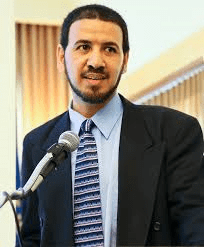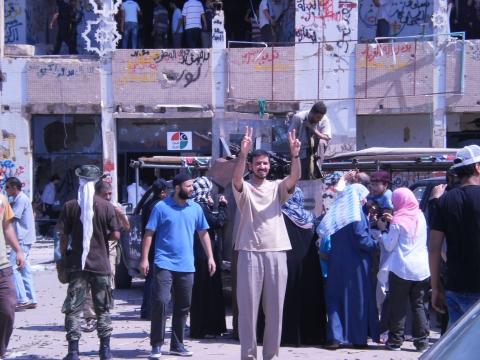The 40-year-old Libyan-American Psychiatrist Omar Reda, MD is a man on a very difficult mission. He faces many hurdles before his dream of a psychologically and emotionally healthy and stable Libya becomes a reality.
Reda, who has dedicated almost all of his professional time to giving mental health support to the Libyans since the beginning of the February 2011 Revolution, is however surprisingly optimistic. Here, for Nahla Ink, he answered questions about his new book ‘Journey of Hope’, which he is currently promoting across five Libyan cities and towns.
Nahla: In the book, you speak of the wounded healer. Has writing the book given you catharsis and closure?
Reda: Catharsis yes. I used writing as my way of coping by way of academic detachment. Closure no, because the country will never be the same especially for the families and loved ones of the deceased. It seems like the Gaddafi mentality and old rules still dictate the country.
Nahla: You mention the need for remembrance and rituals. What would you propose the Libyans do to remember the sacrifices of the Revolution?
Reda: I met with hundreds of families of the martyrs and talked to friends who fought with them in the front lines. Everyone has the same answer, that the best thing to remember the sacrifices of our heroes is to accomplish the mission they started, to build Libya and start with building the human being and raising moral standards.
Nahla: What do you think are the psychological consequences of Gaddafi’s rule?
Reda: Moral corruption, depression and despair, Post Traumatic Stress Disorder (PTSD), addiction, anger, grief, blood and revenge lust. Libyan society remains severely divided. The only way to bridge those differences is through community programs that succeeded in other countries like Bosnia, Rwanda and South Africa for example.
Nahla: Are you collaborating at all with the Libyan Ministry of Health? What is the current position of the Libyan government in relation to Libya’s mental health?
Reda: I tried to collaborate with every Ministry of Health since the Revolution, that is three in total. Unfortunately, projects and initiatives submitted by Libyans seem to end up in the trash.
Nahla: How far have the efforts to provide psychological support come to in Libya today? Are there any current programmes you know about and that you are personally involved with?
Reda: It is a struggle. The most impactful project happening as we speak is the World Health Organisation (WHO) Diplomas. One is for the non-psychiatric MDs to recognize and treat common psychiatric problems in order to fill the gaps and staff shortages, one is for the psychologists, one for nurses and one for social workers. I believe one will start soon also for recreational and vocational specialists. I am the head supervising MD on one of the WHO Diplomas and a Supervision Facilitator on another.
Nahla: You write quite extensively about the children and the need to help them to heal. Who is now looking after the orphans of the revolution?
Reda: The ministry for martyrs and the missing is responsible, but many local NGOs are doing wonderful work with them as well. It seems in Libya that non-official projects have more impact and better received. Maybe they are more sincere and less agenda-oriented than the government’s different parties.
Nahla: You also refer to drugs and addiction. How prevalent is this problem for the youth of Libya? What is the solution?
Reda: Four monsters are haunting Libya right now: moral crisis, the weapons and security issue, traffic and speed accidents and drug addiction. The problem is extremely prevalent and urgently needs to be addressed. Whilst there are many good projects on paper, they are faced with the same obstacles, mainly lack of support. For the youth, we need to keep them busy and support psychosocial, vocational and leisure projects.
Nahla: Can you tell me more about the Libya Al-Shefa Healing Project you mention in the book and how people can get involved?
Reda: Libya Al-Shefa is an initiative that started in June 2011 with the support of local NGOs to address seven projects under one name. These are psycho-education, raising standards of local professionals, support circles for fighters, support circles for families of fighters and the missing, a hotline, an art and play therapy for children, and a reconciliation project.
It has reached some of its goals but it needs the government’s moral and financial support to succeed. People can join Al-Shefa through Facebook: https://www.facebook.com/groups/323504854337123/
Nahla: You say you would like to write a book about every Libyan martyr. Have you started to do this?
Reda: I am working on it and it will be a huge task because we still do not know the exact figures. The deceased on both sides of the conflict are anywhere from 5,500 (the government’s official figure) and 30,000 (the likely number per those in the frontlines).
Nahla: Lastly, what are your hopes for the future of Libya?
Reda: If the government does not take the current major problems we are facing seriously and especially of weapons, drugs and violence, then the situation will only get worse. But if the government changes its attitude and provides support to its citizen and professionals, things will go in the right direction and Libya may even become a role-model in every standard including mental health care.
Note: This article was first published circa October 2013



